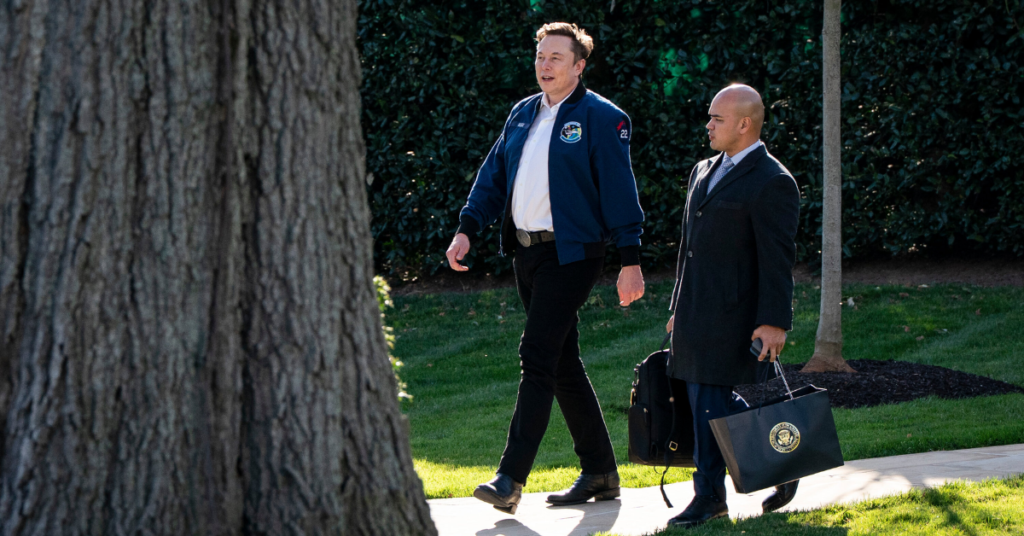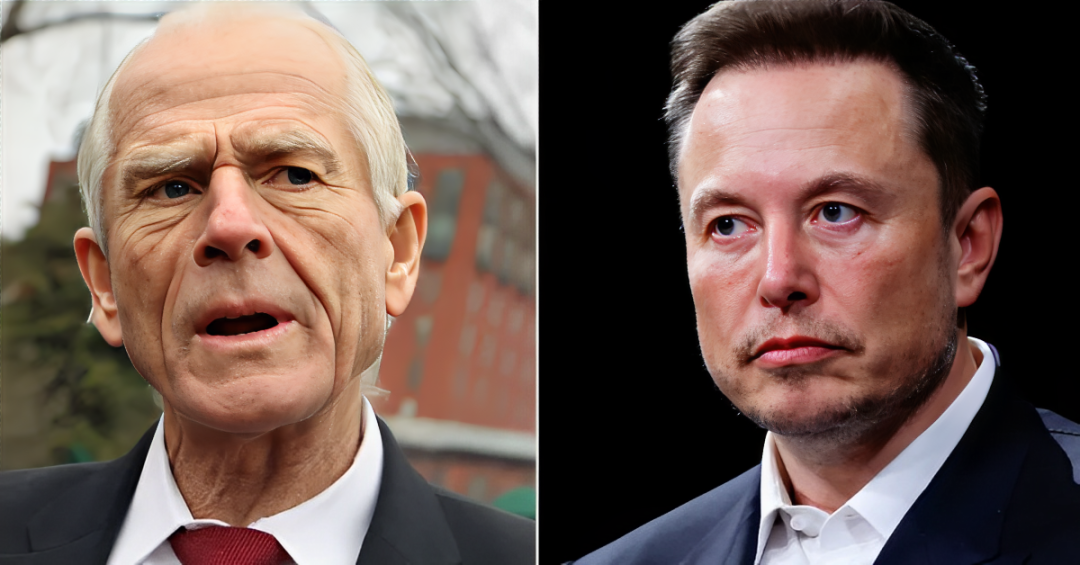Tesla CEO Elon Musk has once again found himself in a public clash, this time with Peter Navarro, a senior trade adviser to former President Donald Trump. The feud centers around the Trump administration’s tariff policies and Tesla’s place within those policies.
Musk took to social media on Tuesday to call Navarro a “moron” in response to comments Navarro made during an interview on CNBC, escalating the tension between the two. This confrontation highlights the ongoing rift between Musk and Trump on trade policies, specifically regarding the U.S. auto manufacturing sector and tariffs.
The controversy began earlier in the week when Peter Navarro appeared on CNBC to discuss the Trump administration’s stance on tariffs and how they relate to Tesla. Navarro suggested that Tesla’s role as a “car assembler” rather than a traditional car manufacturer could conflict with Trump’s tariff policies.
According to Navarro, a significant portion of the parts used in Tesla vehicles, such as batteries from Japan and China and electronics from Taiwan, make Tesla’s approach to manufacturing different from what the Trump administration envisions for U.S. auto production.
Navarro highlighted the administration’s desire to see key car components—like tires, transmissions, and engines—manufactured in places like Akron, Indianapolis, Flint, and Saginaw, which are known for their historical ties to car production.
Navarro’s comments positioned Tesla’s reliance on global supply chains as a point of contention, framing it as a potential problem in the context of the Trump administration’s push to bring manufacturing back to the U.S. “We want the tires made in Akron. We want the transmissions made in Indianapolis. We want the engines made in Flint and Saginaw,” Navarro said, outlining the White House’s vision for an “America-first” approach to manufacturing.
Musk quickly responded to Navarro’s comments, calling him a “moron” in a post on X (formerly known as Twitter). Musk stated that Navarro’s comments were “demonstrably false” and took aim at Navarro’s understanding of Tesla’s operations. Musk argued that Tesla, contrary to Navarro’s claims, is one of the most American-made car manufacturers in the world.
In fact, he went on to say that Tesla is “the most vertically integrated auto manufacturer in America with the highest percentage of U.S. content.” In another post, Musk referred to Navarro as “Peter Retarrdo,” further escalating the name-calling in their online dispute.
The exchange continued with Musk defending Tesla’s position, citing the company’s performance in Cars.com’s American-Made Index, where Tesla has topped the rankings since 2021. The American-Made Index evaluates vehicles based on factors such as assembly location, the origin of parts, and the involvement of the U.S. workforce in the manufacturing process.
Tesla’s dominance in this index is a testament to the significant portion of its vehicles that are made in the U.S. Despite this, Musk acknowledged the reality of the tariff impact, admitting that tariffs have had a substantial effect on Tesla’s costs.

“The tariff impact on Tesla is still significant,” Musk wrote in another post on X last month, acknowledging the financial implications of the trade policies. This comment came just after Musk posted, and then deleted, a remark about Navarro’s PhD from Harvard, which Musk described as a “bad thing,” adding that Navarro had “not built sh*t.” These posts marked a personal escalation in the dispute, with Musk clearly frustrated by Navarro’s criticisms of Tesla’s manufacturing practices.
On the other hand, Navarro downplayed the public clash, telling CNBC on Monday that there were no issues between him and Musk. Everything is good with Elon, no problem,” Navarro said, attempting to defuse the tension. However, Musk’s reaction suggested otherwise, with the Tesla CEO openly challenging Navarro’s understanding of U.S. manufacturing and Tesla’s role in the American auto industry.
Musk’s disagreement with Navarro is not the first time the CEO has parted ways with the Trump administration. Over the years, Musk has occasionally found himself at odds with Trump, particularly on matters of policy and personnel choices. However, the spat over tariffs is one of the more significant policy disagreements to date.
Musk has made his stance on free trade clear, advocating for a reduction in tariffs and even suggesting that there should be zero tariffs between the U.S. and Europe. Musk’s comments have been seen as a direct challenge to Trump’s “America-first” trade policies, signaling a growing divergence between the two.
In fact, Musk reportedly made a direct appeal to Trump regarding tariffs, advocating for a more open and free trade system. While it’s unclear whether Trump has responded to these appeals, Musk’s public position on tariffs is becoming increasingly distinct from that of the former president. This shift highlights Musk’s evolving approach to global trade and his growing influence in political and economic discussions beyond the auto industry.
Despite Musk and Navarro’s public spat, the White House has largely downplayed the situation. Karoline Leavitt, the White House Press Secretary, commented on the exchange during a press briefing, saying that the disagreement reflects the diversity of opinions within the administration.
“Boys will be boys,” Leavitt remarked, suggesting that the public sparring between Musk and Navarro was a minor issue in the broader scheme of things. Leavitt also pointed out that the White House values having a range of perspectives on complex issues like trade and tariffs, implying that such public disagreements are a natural part of the policymaking process.
The ongoing tensions between Musk and Navarro highlight the broader debates around trade policies and manufacturing in the U.S. Musk’s vocal stance on tariffs and free trade contrasts sharply with Navarro’s views on protectionism and prioritizing American-made products. These differing perspectives reflect broader debates in U.S. trade policy, as policymakers continue to navigate the complexities of global supply chains, tariffs, and the future of American manufacturing.
Despite their differences, Musk and Trump’s relationship remains significant. Musk has been one of Trump’s most high-profile supporters, and the two have shared common ground on issues like space exploration and business deregulation. However, the split over tariffs underscores the potential for further divisions between Musk and the Trump administration, especially as Musk continues to push for policies that favor more open global trade.
In the end, the public feud between Musk and Navarro is just another chapter in the ongoing debate over U.S. trade policies. As the situation continues to unfold, it remains to be seen how the relationship between Musk and Trump will evolve and whether Musk’s views on free trade will gain more influence within the political sphere.
Disclaimer: This article has been meticulously fact-checked by our team to ensure accuracy and uphold transparency. We strive to deliver trustworthy and dependable content to our readers.








